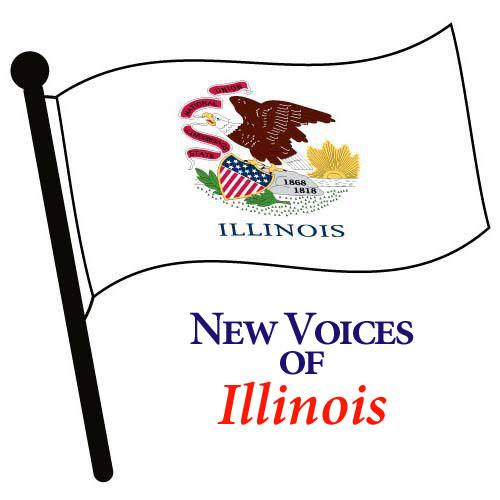New bill will allow aspiring journalists’ voices to be heard

New Voices of Illinois is a movement to guarantee student journalists in the state the freedom to report without fear of consequence.
March 24, 2016
A much anticipated bill protecting the press rights of Illinois public High School Journalists was filed Thursday, February 11, in the state House of Representatives by Representative Will Guzzardi (D-39).
The proposed House Bill (5902) , comes almost two decades after Governor Jim Edger vetoed and derailed the bill in 1997. The new bill, also known as the “Speech Rights of Student Journalists Act,” provides protection for student journalist’s. The purpose of this bill is to give greater First Amendment protection to high school student journalists and allow them to exercise their freedom of speech and of the press in school. Students at state-sponsored higher education institutions in Illinois are already protected by the College Campus Press Act.
The free expression law, which provides college student journalists with added protection against administrative censorship, was passed in 2005. This was based off the 1988 Supreme Court ruling in
Hazelwood School District v. Kuhlmeier — which gave high school administrators the authority to censor school-sponsored newspapers as long as they had a “reasonable educational justification” and the censorship was viewpoint neutral — to subsidized student newspapers at college.Joliet West High School does not practice prior review, which means they do not need administrative approval to print certain material in their school newspaper. However, the paper is held to all journalistic principles and cannot print material that is libelous, slanderous, obscene or done with intent to harm. Published material also cannot disrupt the school day.
School newspaper advisors face the most dangers as all too often there are cases heard of advisors/teachers
being fired over protecting and allowing their students the freedom to exercise their individual right to free speech and expression. Advisors mainly get faulted for allowing their students to publish content that is controversial and content that could portray their school climate in a negative way. Because of this newspapers have established the policy that the opinions of the student run newspapers are not those of the faculty, staff, or administration.Because of this, House Bill 5902 clearly states a fellow employee of the school district should not be suspended, transferred, or dismissed for protecting a student journalist. It is important to keep in mind that this bill does not protect the action of a student that is slanderous, libelous, or violates federal or state law.
“I fully support the New Voices of Illinois Law,” said journalism teacher and publications sponsor Jenn Galloy. “House Bill 5902 will ensure that our young journalists are prepared for careers in media.”
Stan Zoller, chairman of IJEA is behind the voices of Illinois and believes that public schools should have student journalists that should be protected by federal law. According to the SPLC, “t
he law defines civic education as helping young people acquire and learn to use the skills, knowledge, and attitudes that will prepare them to be competent and responsible citizens throughout their lives.”Zoller saw how successful the North Dakota New Voices Act was and decided it was time to push for something similar to be enacted in Illinois. North Dakota’s legislature unanimously passed a student press freedom bill in the spring of 2015. The state law protects both high school and college journalists from censorship.
Sally Renaud, executive director of the Illinois Journalism Education Association and adviser of the Daily Eastern News at EIU is quite passionate on the topic as she shared, “The world of free speech begins with young people learning to express themselves. And thanks to their high school media advisers, many join the adult world thinking critically, with strength and passion. They become adults who use their free speech privileges with a sense of purpose, understanding the power of language and the responsibilities that come with that power.”
About twenty state campaigns are currently seeking similar legislation, and bills have been introduced so far in Nebraska, Washington State, Missouri and New Jersey. The Missouri and Washington bills have both passed initial committee votes. Illi
nois has yet to finalize their bill but it is moving along in the House Committee.
